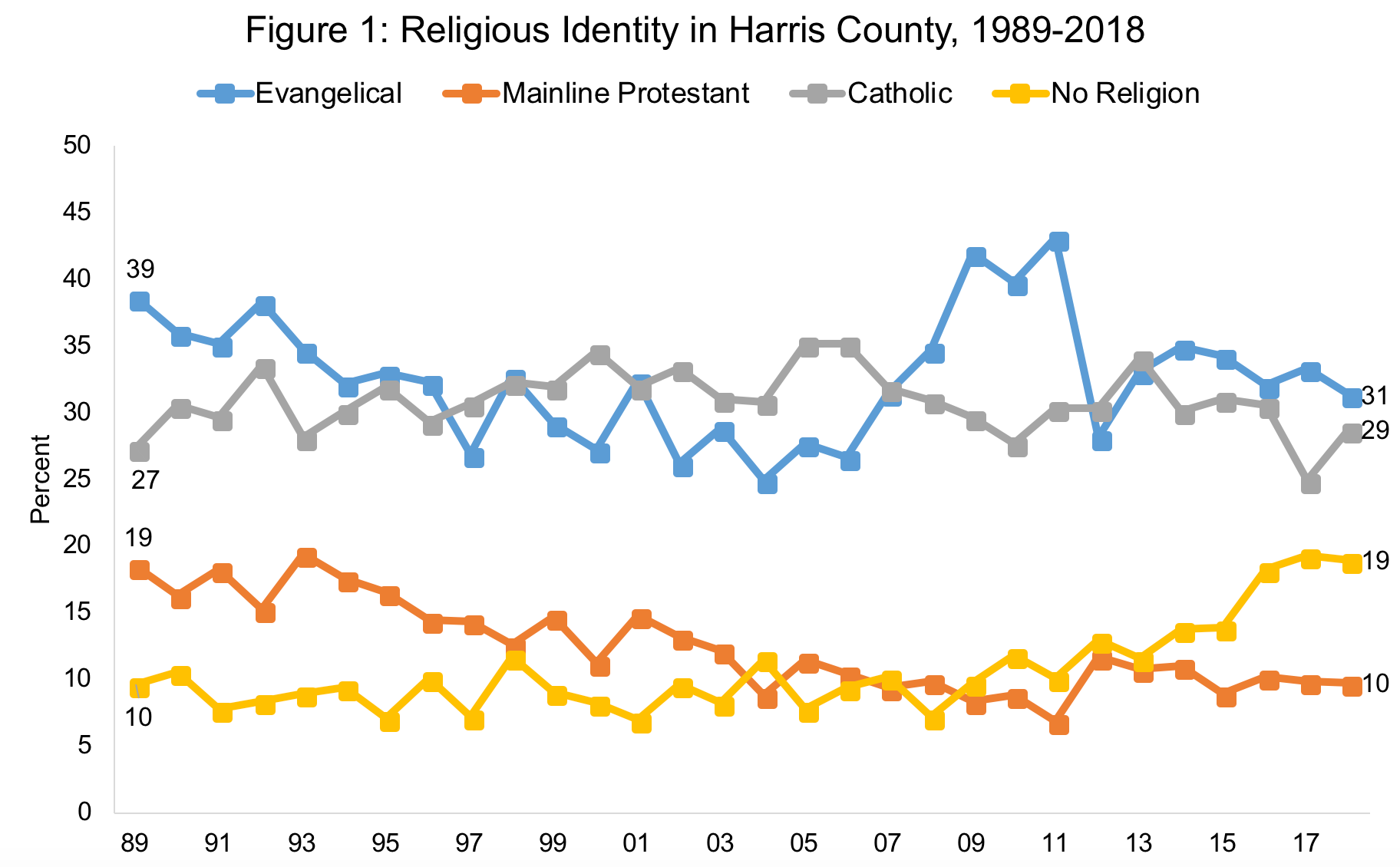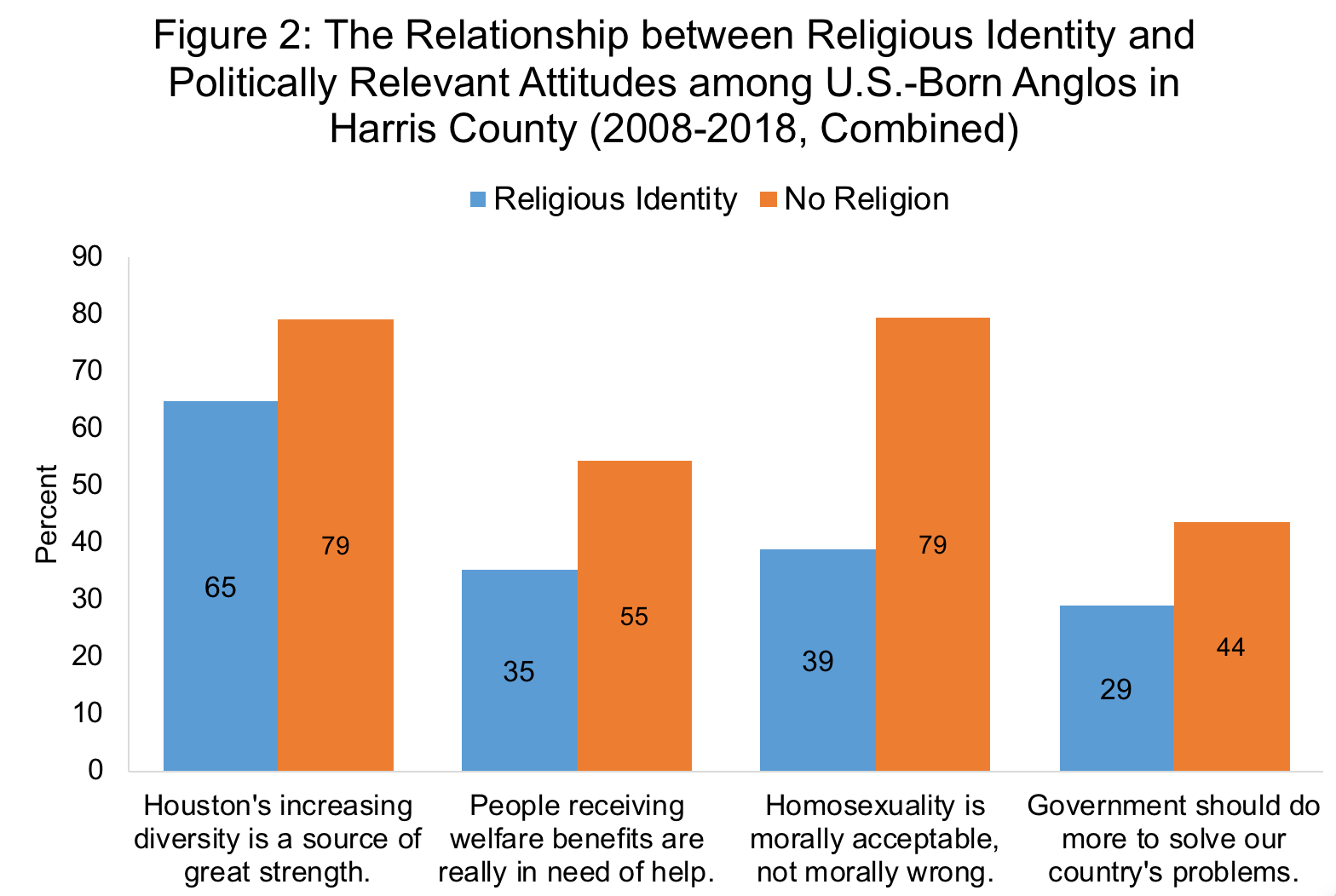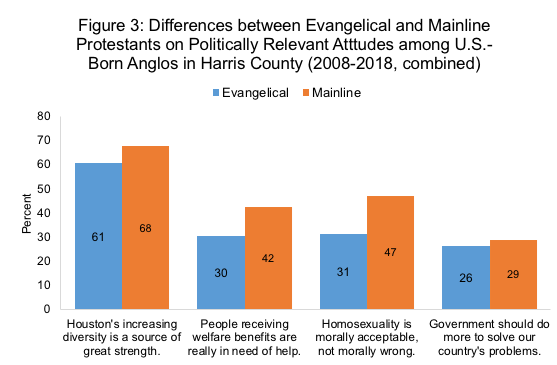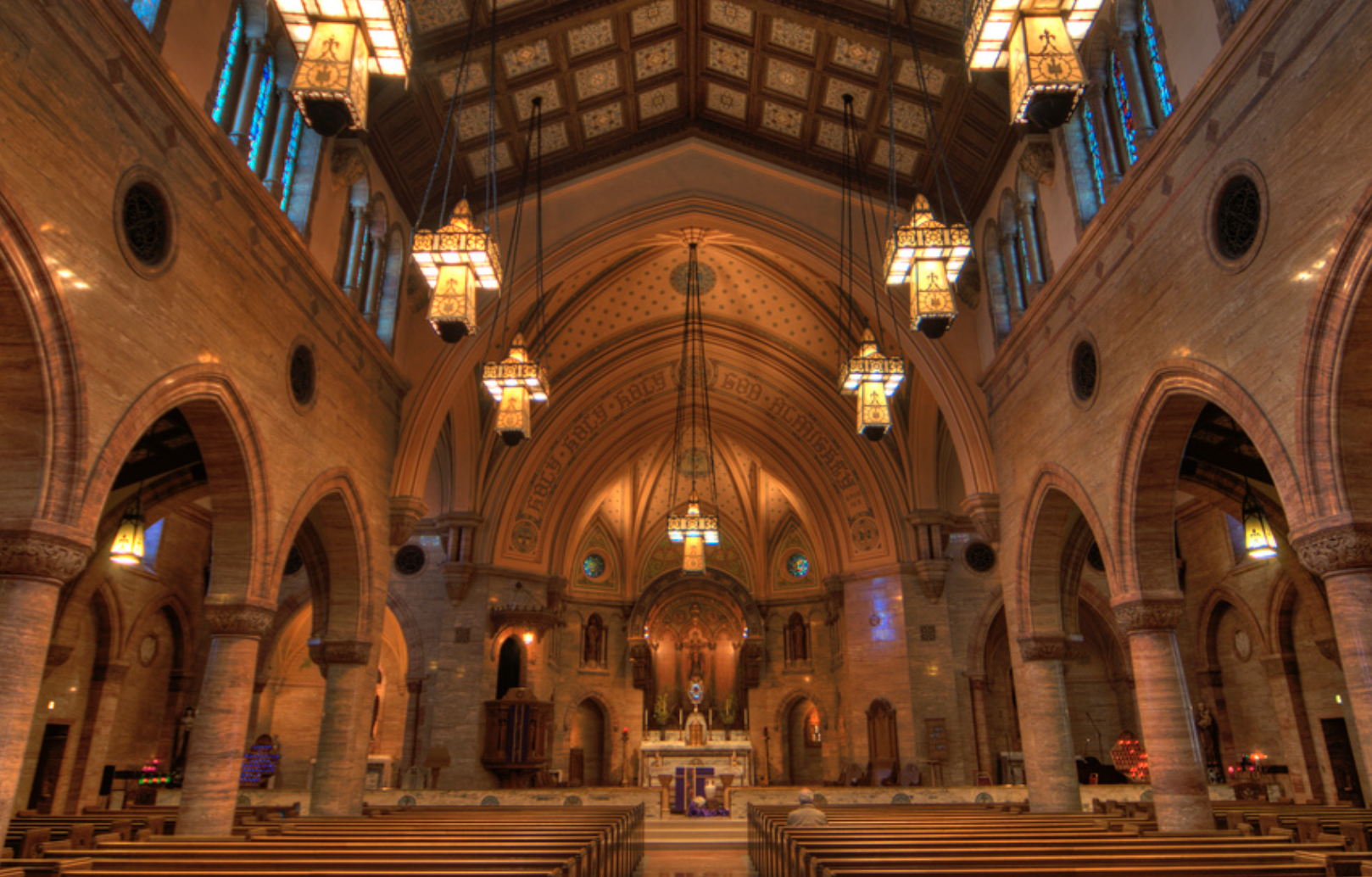This post is the fifth of a series of five articles written by Rice University undergraduate students who participated in the spring semester Kinder Houston Area Survey course. Read the first, second, third and fourth post.
Harris County has grown much more ethnically diverse since the beginnings of the Houston Area Survey 37 years ago. The religious identity and religiosity of Houstonians have also shifted during these years, even within demographic groups. The changes in religious identity are strongly associated with attitudes toward diversity and government programs.
Some of the starkest shifts in religious identity have come from Protestants and from those who identify with no religion. The overall proportion of Protestants has decreased from 63 percent of the respondents in the first Houston Area Survey conducted in 1982 to only 45 percent in 2018. Since 1989, as seen in Figurer 1, the numbers of evangelical Protestants (comprising groups such as Baptists, Church of Christ, Seventh-day Adventists, and non-denominational Christians) dropped from 39 percent to 31 percent. Mainline Protestants (including Lutherans, Episcopalians, Presbyterians, and Methodists) experienced an even sharper decline, from 19 percent of the survey participants in 1989 to just 10 percent today. Meanwhile, the proportion of “Nones” has grown significantly, increasing from 10 percent in 1989 to 19 percent in the most recent survey.

How do these changes affect political attitudes? By definition, the Nones do not ascribe to organized religious practices and teachings. Does this mean that they hold less conservative social views than those who do identify with an organized religion? Conversely, evangelicals are often noted in research and in the media to be powerful advocates for right-wing politics. Do Houston’s evangelicals display more conservative attitudes than mainline Protestants?
Data from the Houston Area Survey enable us to answer these questions. As shown in Figure 2, the U.S.-born Anglos who identify with no religion are significantly more likely to express progressive attitudes compared with those who identify with an organized religion. While 65 percent of the area residents who are religious believe that Houston’s increasing diversity is a good thing, this is the case for 79 percent of the Nones. The latter are also considerably more likely, by 55 to 35 percent, to support welfare programs and to express more positive views of government initiatives in general. The most striking difference between the Nones and other Houstonians is in their attitudes toward gays and lesbians. The Nones (at 79 percent) are more than twice as likely as those who identify with an organized religion (39 percent) to assert that homosexuality is morally acceptable.

Among the Protestant groups, as indicated in Figure 3, mainline Protestants express more progressive attitudes toward diversity, welfare, and homosexuality than do Evangelicals, but they are only slightly less conservative than the average religious person. Evangelicals on the other hand, are consistently more conservative in their attitudes toward these issues than the average religious person. Both Protestant groups are almost equally distrustful of government programs in general.

When controlling for other demographic and socioeconomic characteristics, such as age, political party, and education, religiosity loses much of its power as an independent predictor of attitude differences: Having no religion remains significantly associated, as a separate factor, only with beliefs about homosexuality. This makes sense, since much of the basis for discrimination against gays and lesbians is predicated on religious beliefs and teachings. The Nones are also the most open to diversity and the most likely to support government programs designed to address the growing inequalities. As they continue to increase in numbers, these more secular Houstonians will help to build a more progressive and less “traditionalistic” city in the years ahead.

